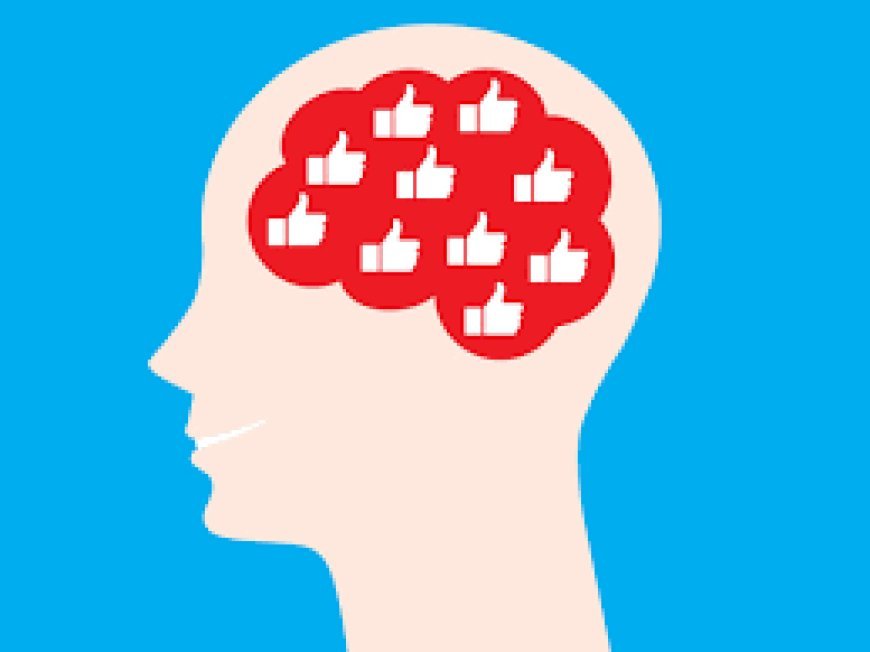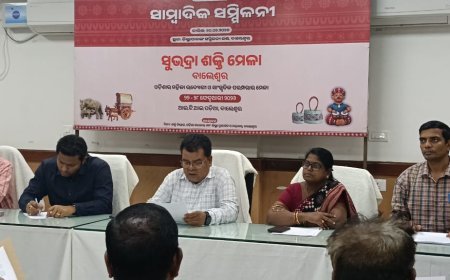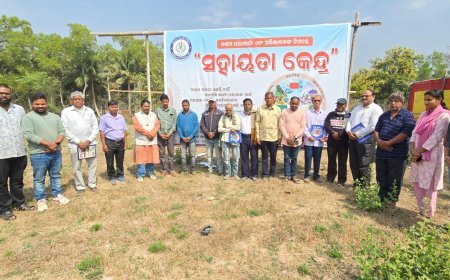A LIKE ON FACEBOOK LEADS TO HEIGHTENED DOPAMINE ACTIVITY IN CHILDREN: MANAGING DIRECTOR & FOUNDER OF TECH WHISPERER LIMITED

Bhubaneswar(01/11/2023): As you are aware of the recent developments regarding Meta's ongoing issues with the US Government, Jaspreet Bindra, Managing Director & Founder of Tech Whisperer Limited, UK has shared his views on the same. The Social Dilemma - the breakaway Netflix docudrama - showed the distressing ways in which social media giants, led on the front by Meta (then Facebook) manipulated human psychology and biology to influence how we behave.
The effect on kids was even more appalling, highlighted by a 14-year-old girl's suicide in the UK, apparently due to prolonged exposure to content about suicide and self-injury on Instagram.
The Meta whistle-blower Frances Haugen then added to the clamour in 2021, by revealing internal documents that demonstrated that Instagram worsened body image issues for teen girls and the company knew it all along.
Even the US Surgeon General issued a formal advisory on this issue. US President Joe Biden deemed this important enough to include the negative mental-health effects of social media on young users in his State of the Union address this year and encouraged Congress to pass bipartisan legislation to tackle this.
The latest in this saga might be the final warning bell for social media, especially Meta and its world-leading social networking platforms.
The Attorney Generals of 33 states in the US have sued Instagram and its beleaguered parent Meta over this issue, charging them with actively contributing to a youth mental health crisis, because of the addictive nature of the platforms.
The number is expected to rise to 42, and the effort is bipartisan, almost as if heeding Biden’s clarion call. The charges in the filing are quite serious: they allege that Meta deliberately strives to make sure young people and teens spend the maximum time possible on social media, despite realising that teenage brains are vulnerable to the instant gratification of likes and approval from other users.
Dopamine, sometimes called the happy hormone, is a neurotransmitter that is associated with feelings of happiness and pleasure.
Studies have shown that a like on Facebook, for instance, leads to heightened dopamine activity in children. The big problem with social networks is not the technology, or the product, or even the early intent of the founders.
The problem with social media is its business model.
Social networks, as the name suggests, were built to catalyse and amplify human connection - to connect the people of the world to each other.
They succeeded admirably in their task, as we found long lost friends separated by distance, high school classmates we knew decades back, and far-flung family members.
However, as the more successful of them grew to span the world through network effects, they gradually morphed into social media.
We do not have social networks any more, all of them have become media properties where the world’s advertisers find us, along with our habits, intentions and behaviours.
We have become pieces of data, purportedly anonymized, but otherwise very visible. Social media influencers have become the new role models, as teens and others strive to like them and be like them.
The algorithm driving them is a vast hungry monster, wanting more and more of our data to grow ever larger. Meta has reasons to be worried about this beyond the US.
The UK and EU regulators are circling and will be encouraged to push forward their own legislation.
India, with the largest Instagram user base in the world at 229mn, is also straining at the leash.
The Minister of Electronics and IT gave a statement soon after the US suit: “It is important for (social media) platforms to be much more accountable and responsible for what they do, what content they host, and who they allow on their platform to host such content"… I think the days of free pass and immunity to (these) platforms are over". Meta has been defensive and said that it has already launched more than thirty different tools to support teens and their families.
They have expressed their disappointment with the suit, saying that it would have been better to work productively together to resolve some of these issues, rather than take a confrontational approach.
However, try as hard as they can, until the business model rewards user engagement and data monetisation, it will be difficult to do so.
Perhaps, the networks can take a leaf out of OpenAI’s playbook for ChatGPT, and look at a subscription model, rather than an advertising one.
That would result in a drastic drop in user base and revenue but, in the long run, they will need to listen to the clanging of these bells to survive.
They also might want to listen to John Donne, who wrote “Never send to know for whom the bell tolls; it tolls for thee.” .












































